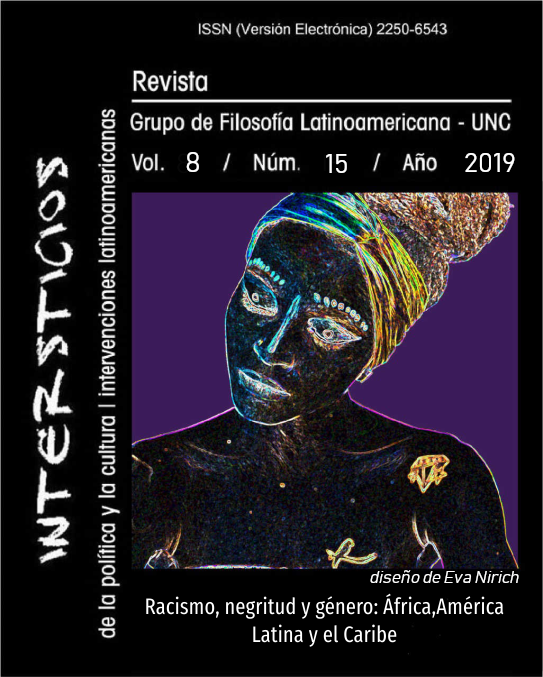Approaching Edward Said's Humanism
Keywords:
Said, Humanism, postcolonialism, OrientalismAbstract
The presence of the idea of humanism in Edward Said’s work is one of the most important problem of his thinking. In fact, the presence of both the reference to “humanist” legacy and a style of thinking rooted in French Post-structuralism appears as an unsolvable conundrum.
In order to fully understand Saidian humanism it is important, first, to situate it in the postcolonial background. In particular, it must be grasped the relation between humanism and anti-colonial struggles. From a theoretical point of view, the best way to study the meaning of humanism is to start from Humanism and Democratic Criticism, that allows to analyse retrospectively the whole of Said’s works, showing the hidden coherence of his thought.
Said’s theoretical elaboration, always very concise and sometimes unsatisfactory, is grounded mainly on two assumptionas inspired by the Neapolitan philosopher Giambattista Vico. First, the idea that human beings make their own history, and since they make it they can know it. Second, is that the “human nature” is constitutively undetermined. These assumptions permit to understand Saidian humanism, from a philosophical point of view, as a “humanism without man”, i.e a humanism that renounce to elaborate any onological-anthropological idea of “Man”. This idea cannot be “fixed” making it more inclusive, but the idea of “humanity” may be the basis of a non-binary and non-discriminative postcolonial thinking, if we accept the idea that humanity cannot be defined by any type of apriori rationality.
Downloads
References
Clifford, J. (1995) Dilemas de la cultura, Barcelona, Gedisa.
Fanon, F. (1983) Los Condenados de la tierra, México D. F. Fondo de cultura económica.
Hussein, A. A. (2002) Edward Said: Criticism and Society, London-New York, Verso.
Kennedy, V. (2000) Edward Said: A Critical Introduction, Cambridge, Polity Press.
Radhakrishnan, R. (2008) History, the Human, and the World Between, Durham, Duke University Press.
Said, E. W. (1975), Beginnings: Intention and Method, New YorkBasic Books.
Said, E. W. (1984) The World, the Text and the Critic, London Faber & Faber.
Said E. W, (1996) Representaciones del Intelectual, Barcelona, Paidos.
Said. E. W (1996) Power, Politics and Culture. Interviews with Edward Said, ed. G. Viswanathan, London Bloomsbury.
Said, E. W., (2000) Reflections on Exile and Other Essays, Cambridge, Harvard University Press
Said, E. W., (2001) Cultura e Imperialismo, Barcelona, Anagráma.
Said, E. W.,(2006) Humanismo y Critica Democrática, Madrid, Debate. Recuperado de, https://books.google.com.ar/books?id=EtgHlhbAD2EC&printsec=frontcover&hl=it&source=gbs_ge_summary_r&cad=0#v=onepage&q&f=false
Said, E. W. (2008), Orientalismo, Barcelona, Random House Mondadori.
Said, E. W. (2013), La cuestión palestina, Barcelona, Random House Mondadori.
Scalercio, M. (2016a) “Edward Said y Palestina: archivo, narración, filología” Intersticios, Vol. 5 N. 10. recuperado de https://revistas.unc.edu.ar/index.php/intersticios/article/view/15302/15696
Scalercio M. (2016b) “The Italian Job: Giambattista Vico at the Origin of Edward Said’s Humanism” Sanglap [On Line] Vol 3, No 1, recuperado de http://sanglap-journal.in/index.php/sanglap/article/view/136.
Scalercio, M. (2016c) Umanesimo e storia da Said a Vico. Una prospettiva vichiana sugli studi postcoloniali, Roma, Edizioni di storia e letteratura.
Walsh C. (2007) “¿Son posibles unas ciencias sociales/culturales otras? Reflexiones en torno a las epistemologías decoloniales”, Nómada, N. 26. ABRIL.
Young, R. (2004), White Mythologies, London-New York, Routledge.
Downloads
Published
Issue
Section
License
Authors who have publications with this journal agree to the following terms:
a. Authors will retain their copyright and grant the journal the right of first publication of their work, which will simultaneously be subject to the Creative Commons Attribution License that allows third parties to share the work as long as its author and first publication in this journal are indicated.
b. Authors may adopt other non-exclusive license agreements for distribution of the published version of the work (e.g., deposit it in an institutional telematic archive or publish it in a monographic volume) as long as the initial publication in this journal is indicated.
c. Authors are allowed and encouraged to disseminate their work through the Internet (e.g., in institutional telematic archives or on their web page) after the publication process, which may produce interesting exchanges and increase citations of the published work (see The effect of open access).


